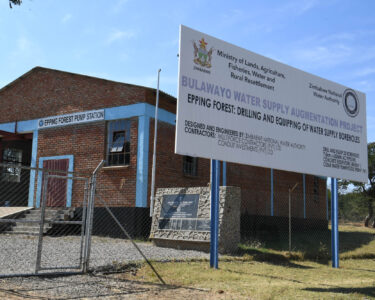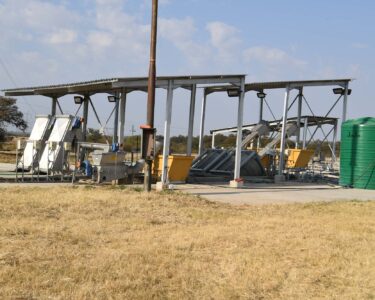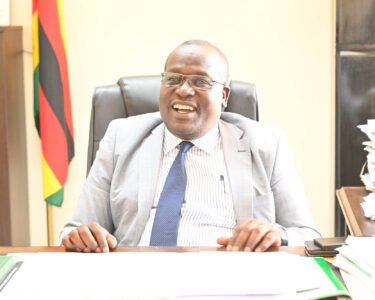On 9 June 2021, President Mnangagwa launched the National Labour Migration Policy for Zimbabwe, which calls for the establishment of migrant resource centres (MRCs) across the country. After the launch, the Second Republic earmarked Beitbridge, Harare, Bulawayo and Plumtree as the seedbeds of the proposed MRCs. As information hubs, the MRCs will save Zimbabweans from being subjected to modern-day slavery as they search for jobs across the globe.
Our Editor-in-Chief, Munyaradzi Huni, was recently in Bulawayo Province where he had a chat with the young and energetic Wellington Mkwananzi, the manager of the Bulawayo MRC. Even though renovations of the proposed MRC offices are still work-in-progress, Mkwananzi was already oozing with confidence, declaring that slavery had no place in the modern world. But he was quick to point out that the grass out there is certainly not as green as many would-be migrants are made to believe. And, you had better believe him. Read on . . .
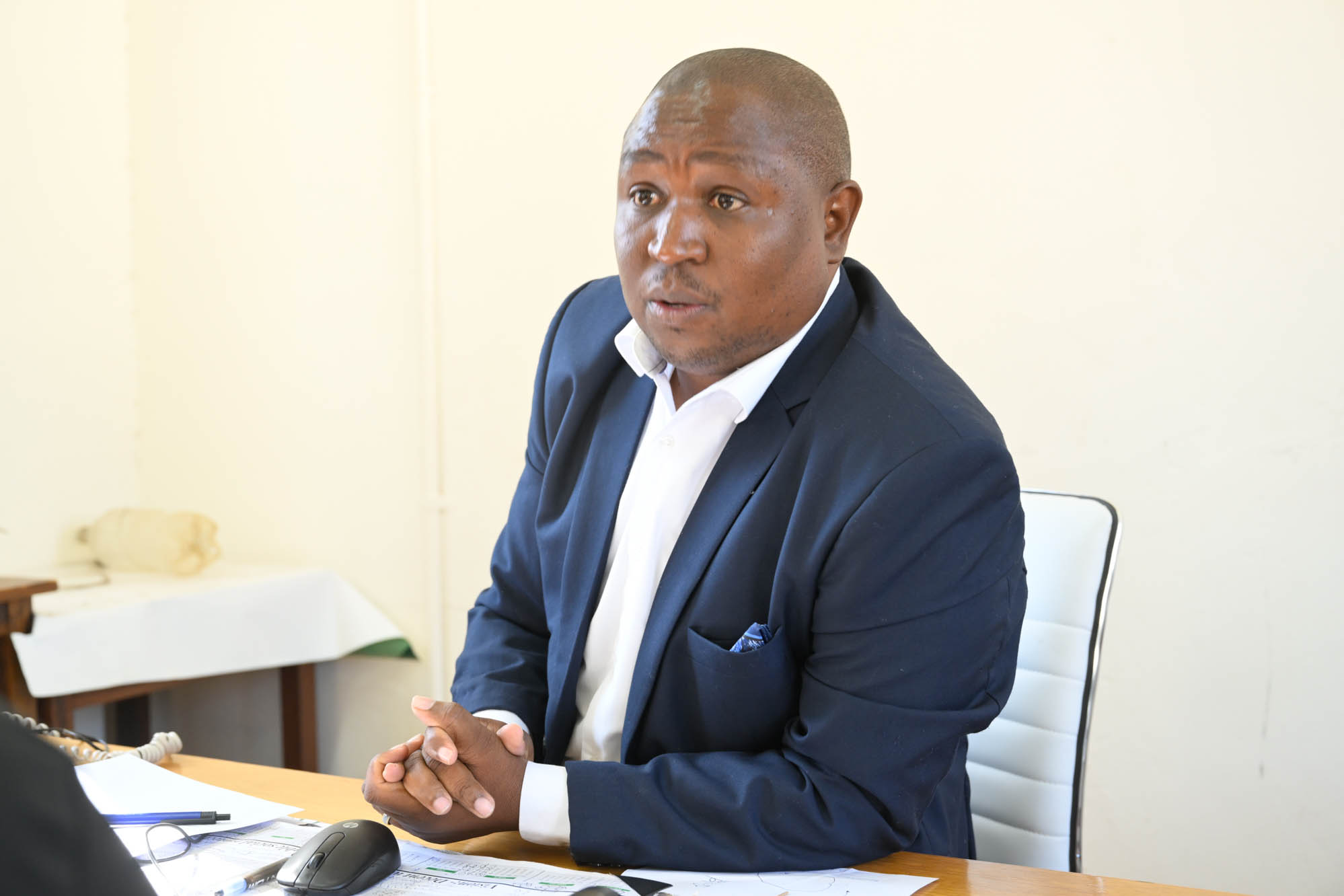
In March 2016, Zimbabweans woke up to the shocking news that over 200 local women were stranded in Kuwait after they were lured to the Middle Eastern country with the offer of lucrative jobs by a suspected human trafficking syndicate. According to the reports, the women had their passports and other personal documents confiscated on arrival in Kuwait; and soon after they were sold off as cheap labour to their hosts’ families for as little as US$2,500.
The Zimbabwe government subsequently engaged the Kuwaiti authorities, leading to the repatriation of these unfortunate women, who were now living in virtual slavery. One would have thought that the widespread coverage of this modern-day slavery in the media would be a wake-up call for other desperate job-seekers. But it was not to be, for in March 2022, reports of more women trapped in abusive working conditions as domestic workers under the Kafala visa sponsorship system in Oman, also made headline news. Under the Kafala system, domestic workers cannot change employers before the expiry of their original contracts.
The Zimbabwean women in Oman were forced to work up to 18 hours a day, confined to their employers’ houses, denied food, underpaid and had their passports confiscated. Again, the government swept to their rescue by ensuring their safe return home.
On realising that thousands of Zimbabweans were falling prey to international human trafficking syndicates, the Second Republic came up with the National Labour Migration Policy, which is designed to improve governance on labour migration issues, as well as guarantee the protection and empowerment of migrant workers.
Under the National Labour Migration Policy for Zimbabwe, the government is mandated to create MRCs to help equip Zimbabweans with critical information on issues relating to safe formal labour migration. The MRCs serve as information hubs on the rights of migrants, what to watch for when travelling outside the country in search of a job, and what to do to reduce one’s vulnerability to trafficking and other unforeseen eventualities.
Considering that some Zimbabweans think the grass is greener in countries such as South Africa, Botswana, the UK, US, Australia and Canada, the decision by the government to set up the MRCs is a most welcome development. However, according to Mkwananzi, it looks like most Zimbabwean would-be migrants are not aware of the existence of these MRCs.
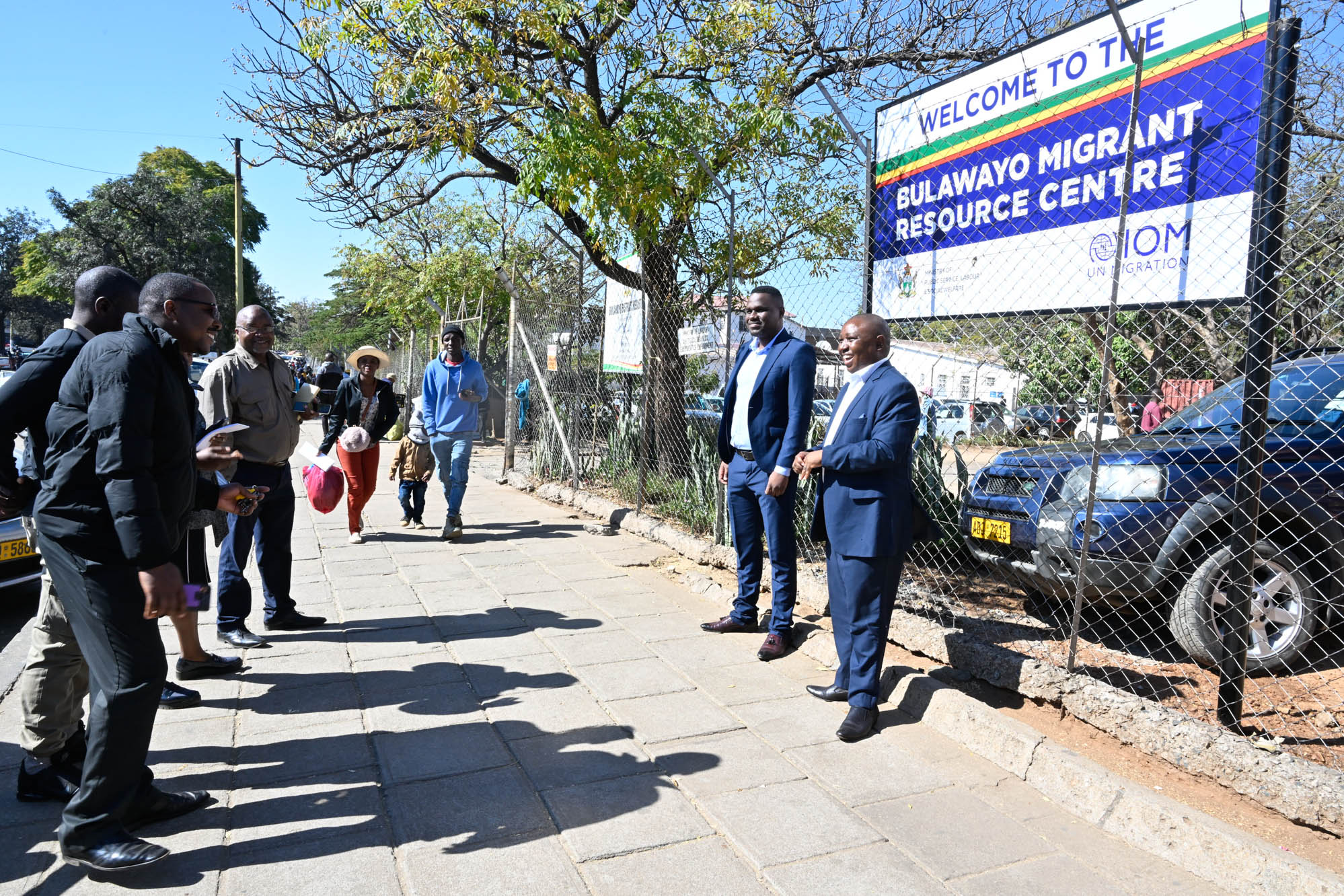
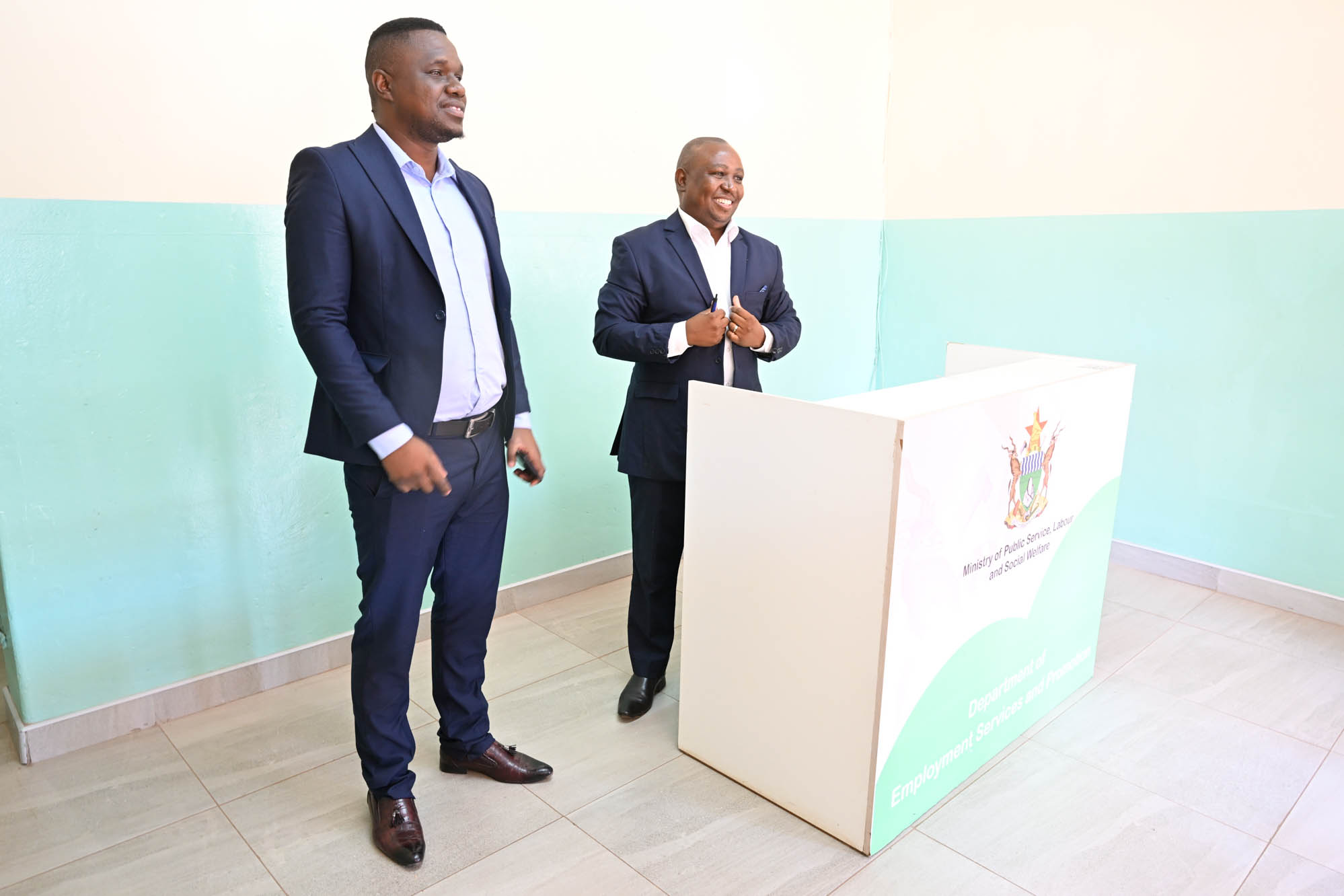
“I have spoken to a number of people and they are apparently in the dark. However, MRCs have been in existence in other countries for several years,” says Mkwananzi, adding: “Renovations towards the creation of the proposed MRC offices started in earnest in February 2023. The renovations are complete. All we are now waiting for are the furniture and computers, which should be delivered within the next week or so.
“I will be working with (NAME STILL TO COME) as my chief employment officer. She is currently in Kenya, where she is studying the MRC operations in the East African country. By the time she comes back home, both of us will be very knowledgeable about MRCs. It is our objective that Zimbabweans who wish to migrate should never be abused again by giving them all the requisite information. There is no room for modern-day slavery.”
The MRCs are being established by government across the country in partnership with the International Organisation for Migration (IOM).
Explains Mkwananzi: “Basically, an MRC is an information hub for those who intend to migrate for the purposes of employment. It also caters for immigrants coming into Zimbabwe. If one wants to migrate, the first thing that we do is to provide information by asking such questions as: ‘You want to go to the UK? How do you intend to go there?’
“We validate the employment opportunities in the UK. We do background checks to see if the vacancy is genuine in order to curb incidences of human trafficking as happened in Kuwait and Oman. Our people were accepting job offers without verification. It was only when they got stranded in Kuwait and Oman that they realised they been duped by human traffickers.
“The MRC is the migrant’s first port of call if they are seeking greener pastures abroad. In these days of social media, you find jobs on cruise ships, domestic or care work being advertised on various platforms like Twitter, WhatsApp, Instagram, etc. Anyone who responds to such offers renders themselves vulnerable to abuse and/or exploitation.
“A human trafficking syndicate can advertise for domestic worker jobs in Botswana, but a closer check will reveal that the offer is fake. But even if the job offer is genuine, the MRC is there to educate would-be migrant workers on their rights.
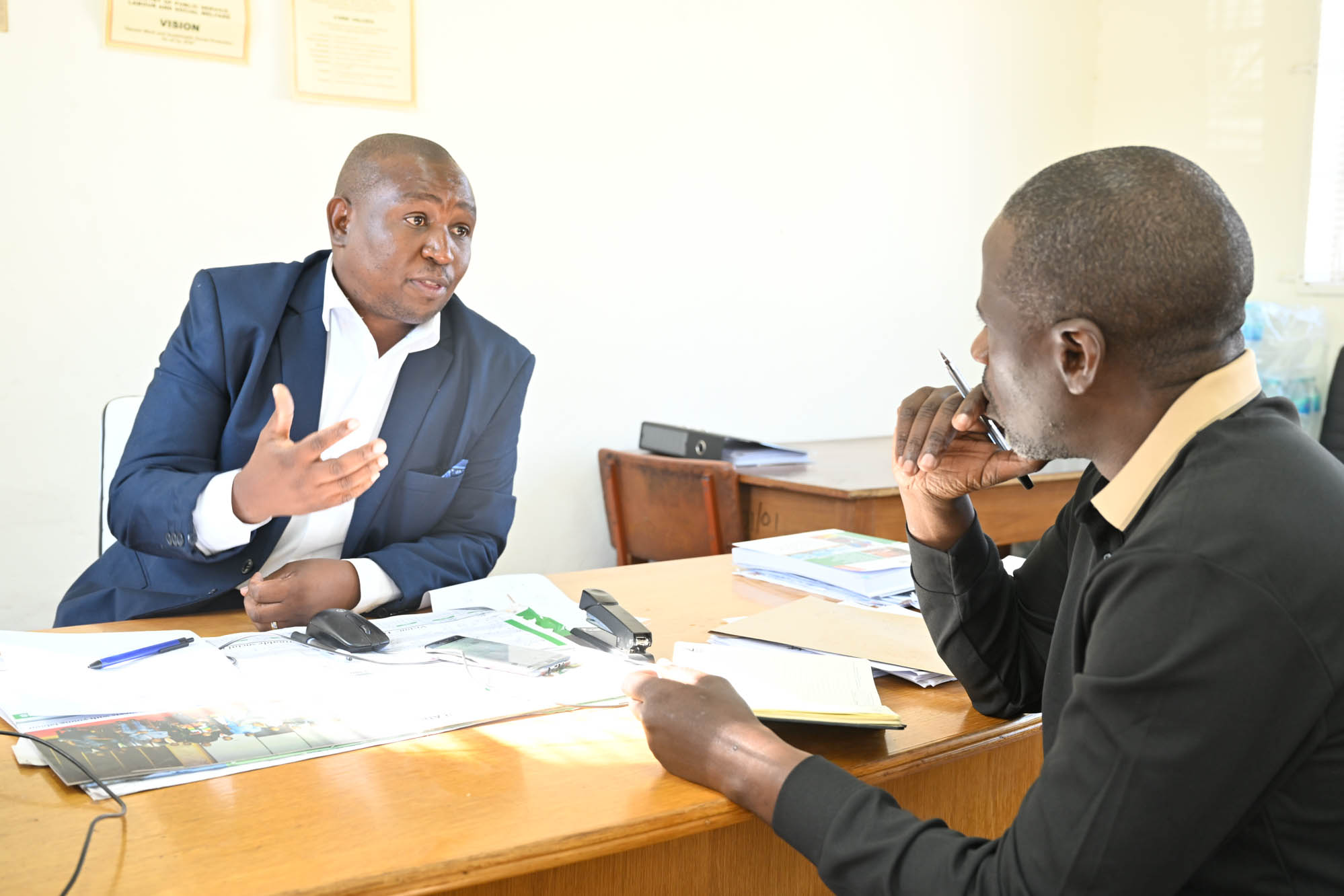
“Suppose you want to migrate to Botswana, we will provide answers to such burning questions as: Is the employer taking care of your travel arrangements? What does your employment contract say? Do you know your labour rights in Botswana? What is your remuneration vis-a-vis the market rate for similar jobs? What are your stipulated conditions of work?
“According to information at hand, the most vulnerable workers are housemaids and gardeners. They work for individuals or families and so are susceptible to abuse. This is particularly the case in the Middle East, were house helpers can find themselves working up to 12 hours a day without a break. Worse still, they are likely to be paid much less than they were initially offered.
“You were offered US$500, but you end up being paid US$100. In addition, your freedom of movement is severely restricted. You are not allowed to go outside the house or to call your relatives and friends. And if you fall sick, you are likely to be denied medical attention. This is exactly what happened to those unfortunate women in Kuwait and Oman.”
Health workers, too, are also vulnerable. There is high demand for health and care workers in the UK, Canada and Australia. As a result, quite a number of job seekers are swindled or made to pay an arm and a leg by unscrupulous agents for the opportunity to work overseas.
Many people don’t know what they need to do before they leave the country. They get most of the information from their relatives in the Diaspora, but sometimes the information is not accurate.
And why the emphasis on Harare and Bulawayo?
Says Mkwananzi: “We targeted Harare and Bulawayo first because the majority of labour migrants pass through these two major cities. As you can see, the Bulawayo office is strategically located. The Registrar-General’s offices and the immigration offices are close by. It’s important that we operate next to these offices because one the objectives of the MRC is to reduce cases of border jumping, especially to Botswana and South Africa. There is a tendency by desperate labour migrants to take advantage of porous border by leaving the country without documentation.
“In addition to providing information to Zimbabwean migrants, we are also mandated to register private employment agencies. These are some of the people who are at the forefront recruiting Zimbabweans for jobs outside the country but exploiting them in the process.
“To give an example, a migrant worker is promised that he/she will be paid US$5,000 per month in the UK. When they get there, they discover that their take-home pay salary is a meagre US$700. The rest of the money goes into the pockets of these so-called employment agencies. The hapless migrant worker is told that the deductions are for air tickets, accommodation, etc. It often turns out that such explanations are nothing but lies.
“My advice to anyone who wants to look for employment abroad is to pay us a visit. It will be worth it because we offer pre-departure counselling and advice. Even if you have ‘already found a job, got the certificate of sponsorship and everything is in order’, we advise you to come to us so for pre-departure orientation.
“We have been working in partnership with the IOM in training some of the agencies on the need to practise ethical and fair recruitment. The results have been mostly positive so far.
“Another worrying issue is that most migrants to the UK, Canada or Australia, etc, are not even aware of the addresses of where embassies in those countries. This is critical information they should have at their fingertips in the event of any challenges.
“Some people are in a rush to migrate to the UK, yet do not have the slightest idea of what host culture entails. That is why when some of our people go to the UK, they end up getting frustrated and suffering from mental disorders.
“When a would-be migrant comes to our offices, we take them through a one-week pre-departure orientation. During their time with us, we provide them with critical information on the host country; the labour market; salary and wage structure; working hours; terminal and medical aid benefits, etc.
“We have discovered that when Zimbabweans migrate to the UK, they are shocked by the high cost of accommodation. No one will warn you about this before-hand. You will only find out when you get there. To illustrate my point, suppose, you are a civil servant and you are getting around US$500 per month. You decide to emigrate to the UK because you have been offered a job that will pay you, say, 5,000 pounds per month. However, when you get there, you discover that after paying your rent and utilities you are left with only 500 pounds. So why leave your ‘low-paying’ job here in Zimbabwe if three-quarters of your ‘hefty’ salary is swallowed up by the high cost of accommodation? Don’t fool yourselves, it’s not as green as people think it is out there!”
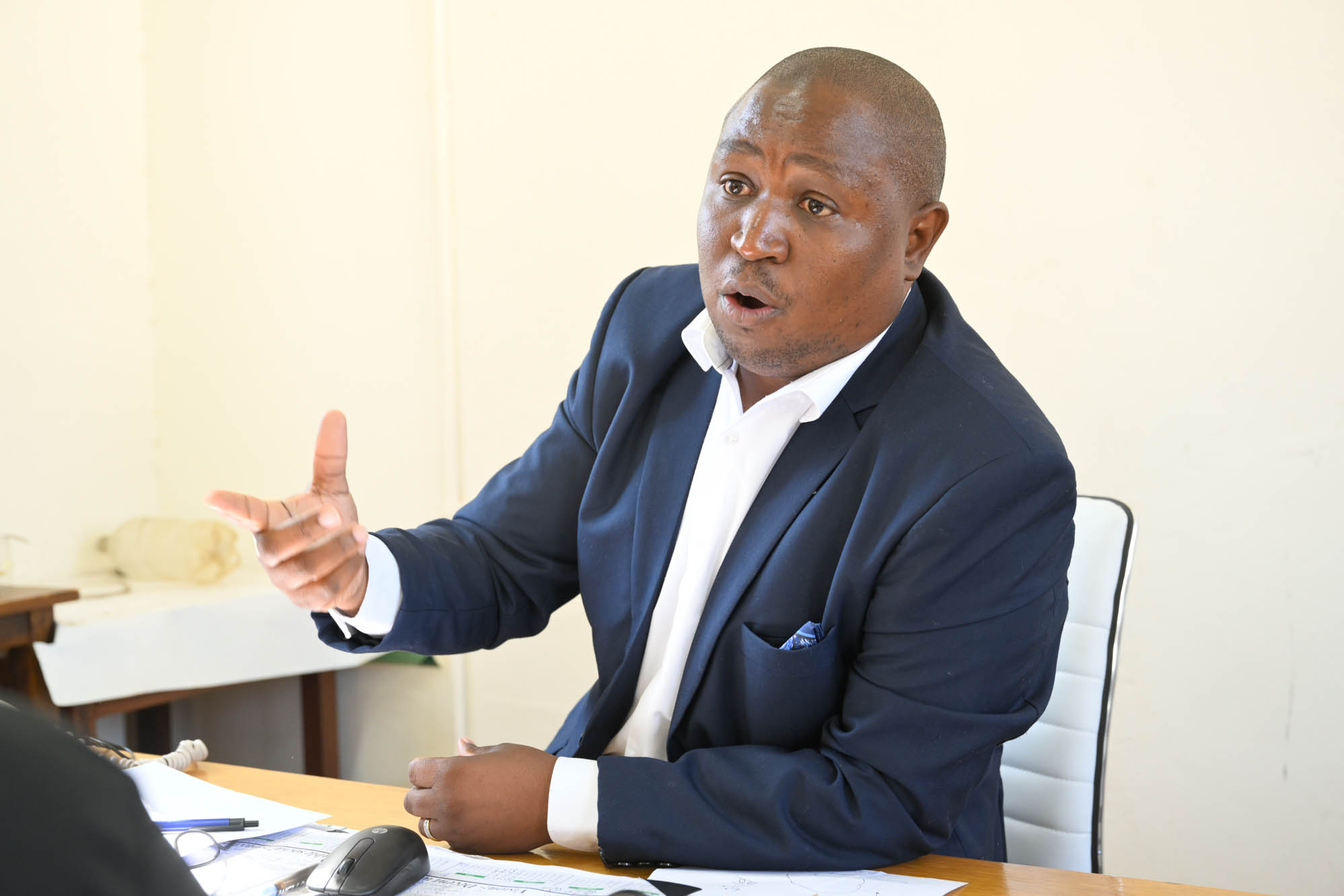
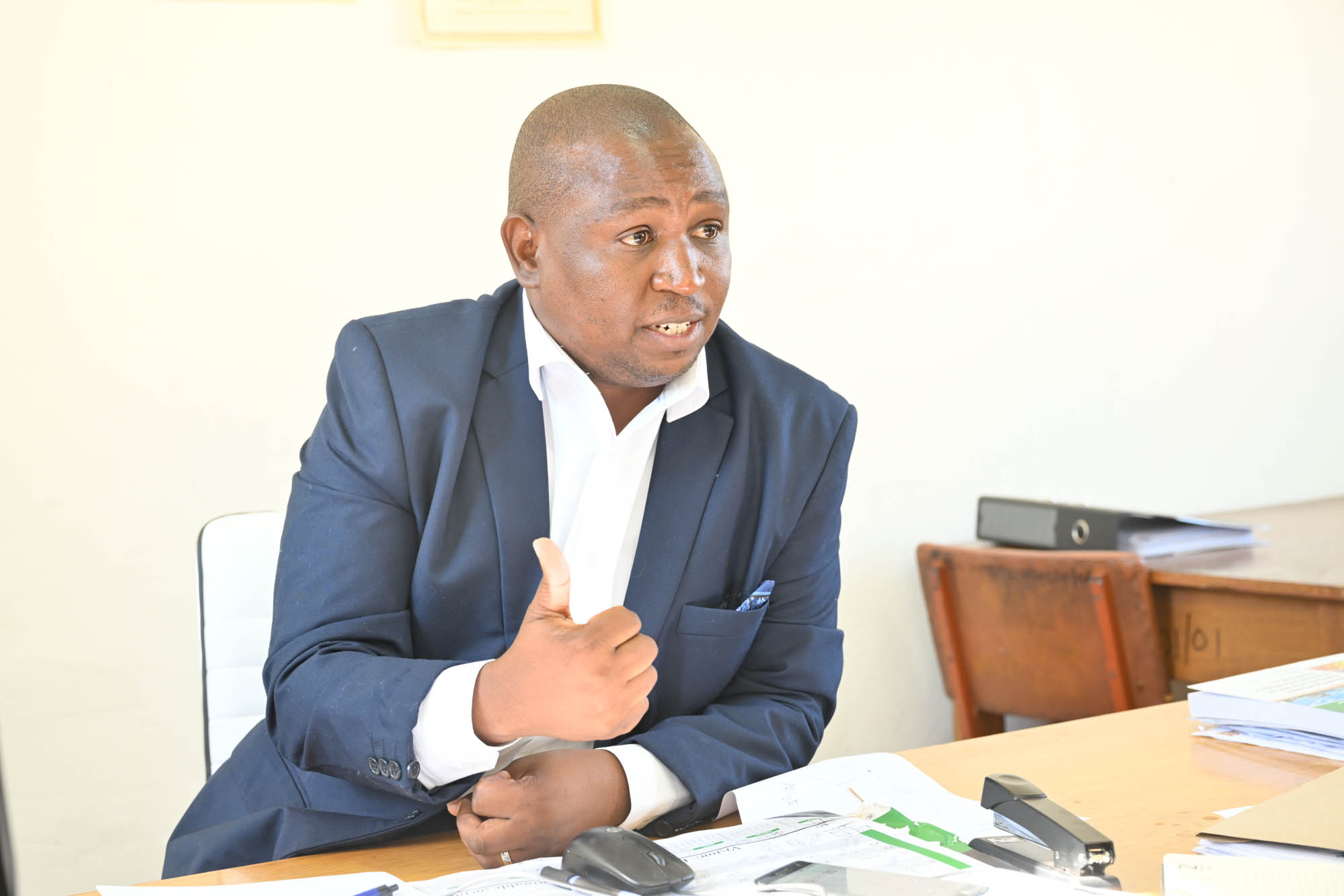
Mkwananzi was recently in Nigeria to study the operations of MRCs in the West African country. And below he shares some of his observations:
“I found out that some people after getting jobs outside Nigeria, they go to the MRC and when things are explained to them they discover it’s not worth leaving Nigeria.
“One of the biggest lessons I learnt was that the Nigerian authorities are offering re-integration services for returnees. They are looking at what skills they have acquired and supporting them to establish their own companies. This is working wonders for the Nigerian economy and it is something that we should replicate here in Zimbabwe.
“We should harness the skills of our returnees from South Africa, Botswana, the UK, Australia and Canada by creating employment opportunities for them. That way we will reduce the pull and push factors that fuel migration.
“In addition, Nigeria has capacitated its vocational centres for the sole purpose of training migrant workers. For example, if Country A is looking for, say, electricians or carpenters, these are trained at these vocational centres ahead of migration to the destination country. After training, the successful artisans are issued with the requisite work permits.
“Nigeria has signed memoranda of understanding agreements with several countries to ensure hassle-free migration and protection for its migrant workers. This is exactly what Zimbabwe has done with regard to teachers recruited to work in Rwanda under a bilateral agreement.”
Mkwananzi also warned Zimbabweans about the pitfalls of border jumping.
“It’s a pity, some Zimbabweans believe that applying for a passport is a cumbersome process. They are stuck in the past because things have changed for the better under the Second Republic. The long passport queues of yesteryear are long gone. Moreover, it’s now even more affordable. There is really no reason to risk one’s life by jumping the border to go to South Africa or Botswana,” opined Mkwananzi.
But a passport is not enough, Mkwananzi hastens to add. “You should also have a valid visa. For example, visitors to South Africa are given Temporary Residence Status. But once in the neighbouring country migrants start looking for jobs and when they secure one, they continue to live there without proper documentation. This is against the law and exposes them to abuse. To be on the safe side, all migrant workers should have permits or relevant visas entitling them to be resident or to work in that country.”
Going forward, the MRC plans to embark on awareness campaigns across the country, targeting primary and secondary schools, especially in Matabeleland.
“As MRC Bulawayo, we are going to embark on outreach programmes to educate our people on how to go about acquiring passports and working visas for different countries. We discovered in Nigeria that these outreach programmes, which are extremely helpful, start at school level.
“Here in Matabeleland, we have to start these outreach programmes from primary school upwards because we now have some pupils whose only dream is to go to South Africa one day. Babona umalayitsha (They see a cross-border middleman who delivers groceries bought in South Africa to Zimbabwean families) and they admire what they are doing. And so in their minds, they are going to school in order to become umalayitsha. To them umalayitsha is a passport to Johannesburg, the “City of Gold”, to make a quick buck. We need to reach out to these pupils and open their minds when they are still young.
“As MRC, we will be working with the Diaspora forums in South Africa, the UK, Canada, Australia, etc, because they have first-hand information on issues affecting their members,” he said.
To Zimbabweans who want to come back home, Mkwananzi says: “Like what President Mnangagwa has always been saying, we welcome them back home. Since South Africa announced that it will sending some of our people back home, we have been preparing to welcome them with both hands.
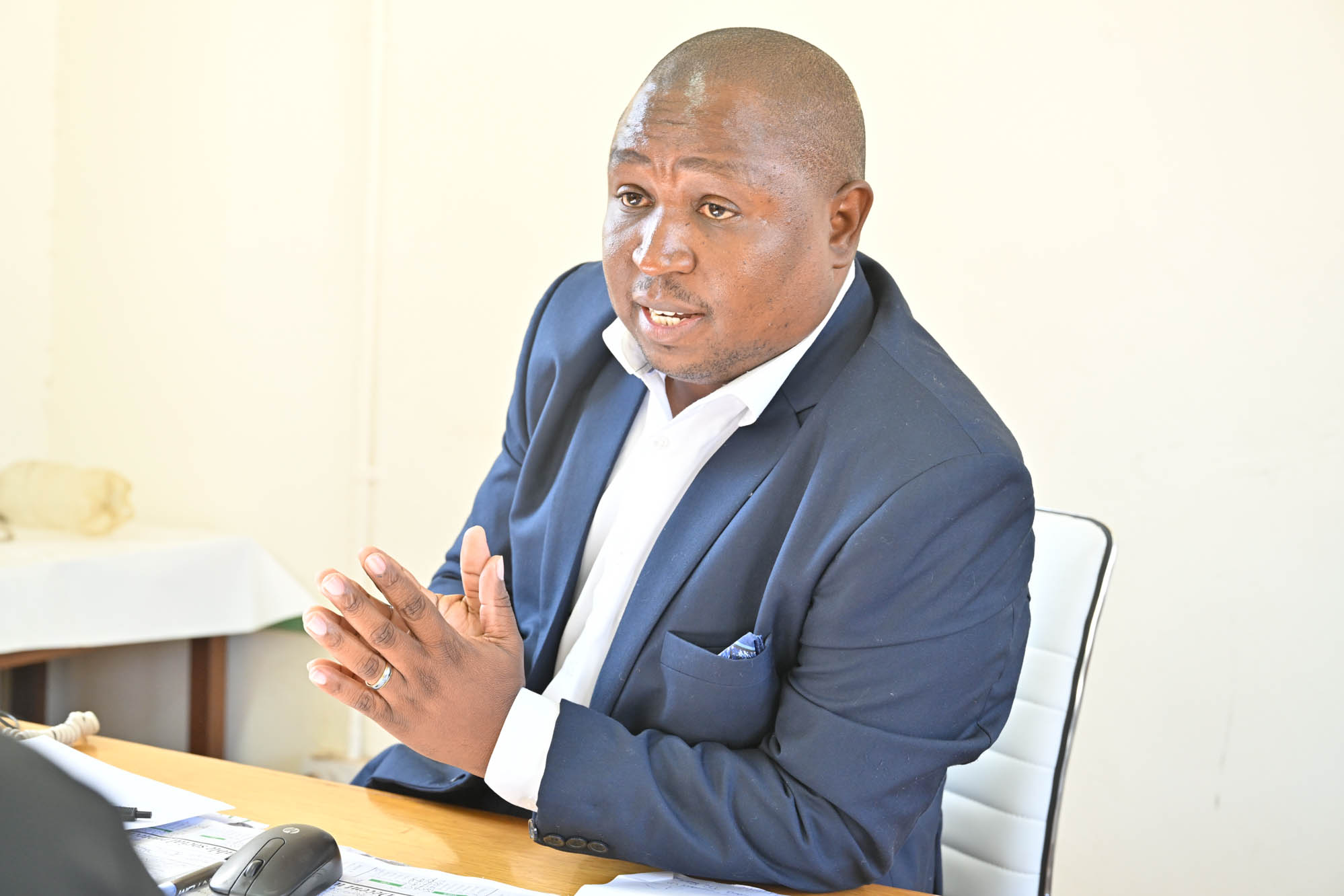
by their reports, getting formal employment in South Africa now is very difficult
because its economy is not growing as fast as it was in years gone by. The majority of
Zimbabweans in South Africa are now self-employed”
“We don’t want to go back to the colonial Wenela system under which our forefathers worked in South African mines all their productive lives but returned home empty-handed, even after suffering life-threatening illnesses. We want to assist returning Zimbabweans to get all their dues. As we speak, there are media reports that some unscrupulous employers south of the Limpopo are already dismissing Zimbabwean workers even before the expiry of their work permits to avoid paying them their terminal benefits.
“In addition, it is common knowledge that our brothers and sisters in South Africa have acquired several movable assets, which they would love to bring home. The Second Republic has, therefore, put in place a waiver on duties on the importation of such assets. Some of our migrant brothers and sisters may not be aware of this duty relaxation. It is our duty, too, as MRC to educate them on this window of opportunity which they should take advantage of.”
The MRC was also working with the relevant stakeholders on the thorny issue of integrating returning migrants’ children into the education system. “As MRC, we will be working with the Ministry of Primary and Secondary Education to ensure their smooth integration,” says Mkwananzi.
Although the MRC’s key role was to provide labour migrants with a clear roadmap to life outside Zimbabwe’s borders, Mkwananzi had a few words of advice.
“I have relatives in South Africa. The grass is certainly not as green as it looks, judging by their reports, getting formal employment in South Africa now is very difficult because its economy is not growing as fast as it was in years gone by. The majority of Zimbabweans in South Africa are now self-employed.
“And because of the lack of formal employment, some frustrated Zimbabweans are resorting to all kinds of criminal activities. They can’t get jobs and some are embarrassed to come back home. As MRC, we want to reach out to these people. Most of our people have skills, thanks to our robust education system and so we should harness those skills. We can’t let them suffer from xenophobia.”
A graduate of the country’s National Youth Service, Mkwananzi1i underwent his training at Dadaya in the Midlands Province, where he learnt to lead by example.
“We want Zimbabwean youths who fail to get formal jobs in South Africa to come back home and embark on income-generating projects. Since I am a strong believer in more action and less talk, I have teamed up with my friend, Proud Tshuma, to launch an apiculture project. Situated in Mguza District, about 25 km from Bulawayo, it is the first of its kind in the province.
“We have so far trained about 500 job seekers who are now also into beekeeping. After training them, we gave them beehives for free, thanks to the support we have received from the government. No doubt, this project has changed the lives of hundreds of youths in Mguza District.
“We want to create employment opportunities for the returnees and turn them into entrepreneurs. Apiculture is just one of the several projects we plan to implement in conjunction with MRC for the benefit of the South African returnees.
“At some point in my life, I was also under the impression that migrating to South Africa was a landmark achievement. I was raised by my grandmother in Bulawayo’s Makokoba high-density suburb. Growing up, I always admired boys and girls who migrated to South Africa [and returned home as injivas]. But over time, I have realised that there are so many opportunities here in Zimbabwe if one is prepared to work hard.
“I joined the Ministry of Public Service, Labour and Social Welfare on leaving school because this is was the ministry responsible for paying both my primary and secondary school fees under what they used to call the Social Dimensions Fund (SDF). Now it’s called BEAM [Basic Education Assistance Module]. I couldn’t go to University of Zimbabwe, despite having the requisite qualifications, because I was unable to raise the fees. It was then I decided to enrol for the National Youth Service at Dadaya, and here I am today.”



